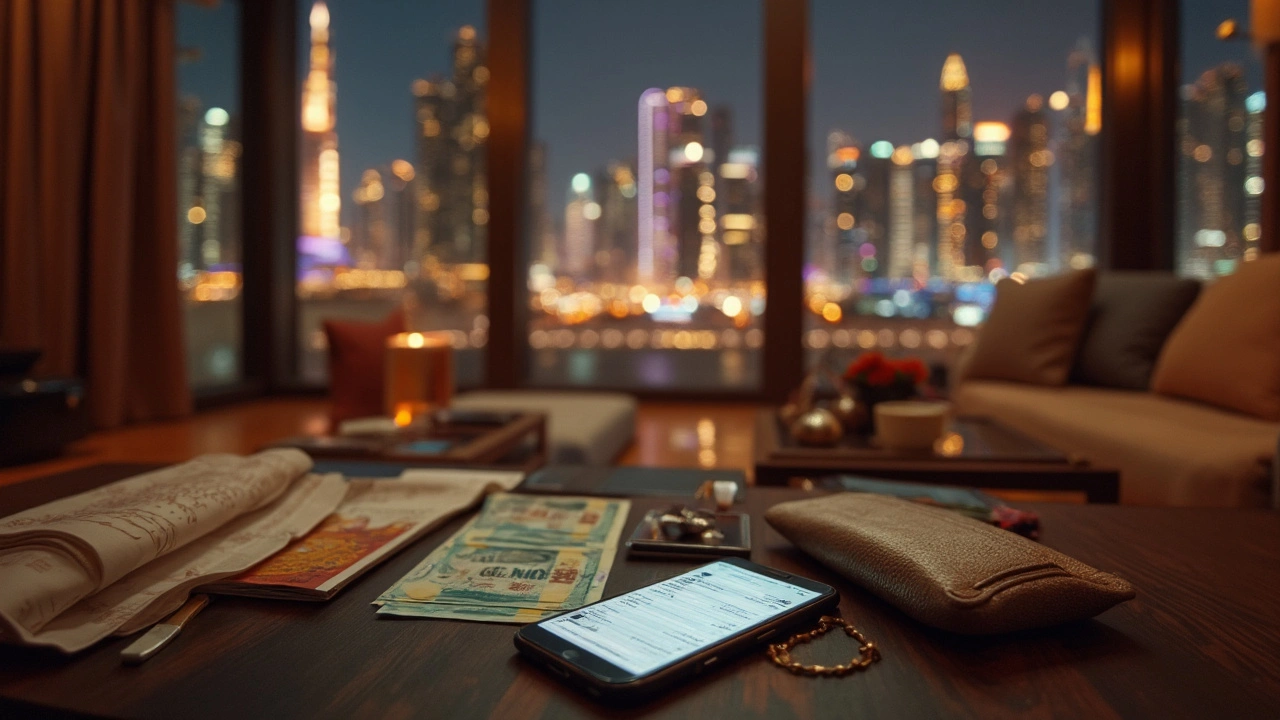Cost of Living in Dubai: What You Need to Know Before You Arrive
Planning to move or stay in Dubai? The first thing most people wonder is how much money they’ll actually need. Dubai looks glamorous, but the everyday costs can surprise you. Below you’ll find a straightforward breakdown of the biggest expense categories and quick ways to keep your budget in check.
Housing and Rent
Rent is the biggest line item for most expats. A one‑bedroom apartment in a popular area like Downtown or Marina usually costs between AED 6,000 and AED 10,000 per month. If you’re okay with a bit of a commute, neighborhoods such as Al Barsha or Deira can bring that down to AED 3,500‑5,500. Remember to factor in the Ejari registration fee (around AED 190) and a security deposit equal to one month’s rent.
Many landlords accept quarterly cheques, which can help you avoid the hassle of monthly payments. If you’re on a tight budget, consider sharing a flat—roommates split the rent and utilities, cutting costs by up to 40%.
Food, Transport & Everyday Extras
Groceries in Dubai aren’t drastically higher than in many Western cities. A basic basket of rice, eggs, chicken and fresh veggies costs roughly AED 300‑400 per week for one person. Shopping at hypermarkets like Carrefour or Lulu saves you more than boutique stores.
Dining out varies widely. Quick meals at local shawarma stalls are under AED 15, while a three‑course dinner at a mid‑range restaurant runs AED 150‑200. For a balanced budget, treat yourself to street food a few times a week and reserve nicer meals for special occasions.
Public transport is efficient and cheap. A Nol card topped up with AED 100 gives you unlimited access to the metro, buses, and trams for about a month. Taxis are handy but can add up; a 10‑kilometer ride typically costs AED 30‑40.
Utilities—electricity, water, and cooling—average AED 400‑600 per month for a one‑bedroom apartment. If your building offers centralized cooling, expect a slightly higher bill during summer.
Entertainment and leisure also fit into your budget. A movie ticket costs AED 35‑45, while a gym membership ranges from AED 150 to AED 400 depending on the facilities.
Smart Savings Tips
1. Negotiate rent. Many landlords are willing to lower the price if you offer a longer lease or pay in advance.
2. Shop during sales. Ramadan and Dubai Shopping Festival bring deep discounts on clothing, electronics, and groceries.
3. Use cash‑back credit cards. Some cards give you up to 5% back on dining and travel, effectively reducing your out‑of‑pocket cost.
4. Combine transport. Pair metro rides with walking or cycling to cut down on taxi usage.
5. Cook at home. Preparing meals reduces the food bill by up to 30% compared to eating out daily.
By keeping these numbers and tips in mind, you can plan a realistic budget that lets you enjoy Dubai’s lifestyle without breaking the bank. Whether you have AED 5,000 or AED 12,000 a month, there’s a way to make the city work for you.
-
 VIEW POST
VIEW POSTIs $100 a Day Enough in Dubai? Escort Budget Breakdown
May, 26 2025|0 CommentsThis article breaks down what $100 a day gets you in the Dubai escort scene, covering everything from accommodation to daily expenses. You'll find practical insights on how far your money goes, including real examples of costs for essentials and services. Want to know about hidden expenses or savvy ways to stretch your budget? Get a straight answer—no fluff, just facts. Perfect for anyone thinking about working or spending time in Dubai’s adult industry.